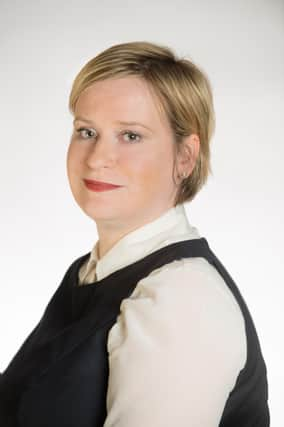The constitution of family unit is evolving, and so too is the role of the family lawyer - Amanda Masson


The pandemic has created tensions, anxieties and challenges for many families. Sadly, the number of individuals approaching me for advice on separation and divorce has increased. Stresses created by the pandemic are often cited as the reason why a relationship has become strained. For others, lockdown provided an opportunity to pause for thought, leading to positive decisions being made around what a better future would entail.
That picture can be positive, as can the process of separation, if managed sensitively and with care. Statistics quoted in the press can appear alarming. How prevalent is separation, and what are the main reasons behind the decision to bring a long-term relationship to an end?
Advertisement
Hide AdAdvertisement
Hide AdThe Registrar General’s Annual Review provides information on demographic trends in Scotland. Since 1985, when the Family Law (Scotland) Act came into force, the divorce rate in Scotland has generally declined, although so has the number of marriages. Cohabitation is increasingly common.
Interestingly, the number of divorces granted in the Scottish Courts between 2019 and 2020 was 7,883; an increase of 7 per cent on the previous year. The figures for 2020-2021 are not yet published, but I suspect that upward trend may continue.
The legislation provides for an application for divorce on the ground that the marriage has broken down irretrievably as evidenced by one of a number of factors. One factor is “unreasonable behaviour”, generally defined as behaviour so unreasonable that a spouse cannot be expected to continue in that marriage partnership. It is a subjective test.
Adultery can be another cause. Spouses can also be divorced on the basis of one or two years’ separation, depending on whether or not their spouse consents. The majority of divorces in Scotland proceed on the basis of the length of the period of separation, the parties to the marriage having resolved financial and child care issues.
Taking time to reflect on my own professional practice led me to realise that family law is not only about the business of separation. The range of situations in which I am consulted is widening. The role of the family law solicitor embraces many aspects of family life, including pre and post-nuptial agreements and the creation of new family units.
There were 472 applications for adoption granted in 2019 and 15 applications for a parental order were granted following the birth of a child to a surrogate in Scotland in 2018. Some parents decide not to marry or live together at all, as evidenced by a rise in the number of approaches about co-parenting agreements prior to conception of a child and adoption by single individuals.
The constitution of the family unit is evolving, and so too is the role of the family lawyer. Societal attitudes towards the end of relationships and the beginning of others is changing, too. With this evolution comes the possibility of a positive future.
Social media is awash with inspirational quotes designed to motivate as we head into 2022. “You’re always one decision away from a totally different life” may seem trite, but it seems to me that there is a kernel of truth in that.
Advertisement
Hide AdAdvertisement
Hide AdReflecting on my own professional practice as a family and child law specialist I can see the nature of my role continues to evolve. There is a sense that, as we begin to emerge from the pandemic, individuals are perhaps more willing to embrace change. Staying put in a situation that is not fulfilling or happy seems less palatable when faced with the stark realisation that life is short. As we know, life can change radically and quickly. Change need not be negative. A trusted legal advisor can help facilitate change and effect the legal requirements necessary to formalise the change to a family structure in accordance with the aims of the individual. Whether the aim is to bring a marriage to an end, conclude a pre-nuptial agreement or to create a new family unit, it is possible to approach the legalities with purpose and positivity.
Amanda Masson is a Partner, Harper MacLeod